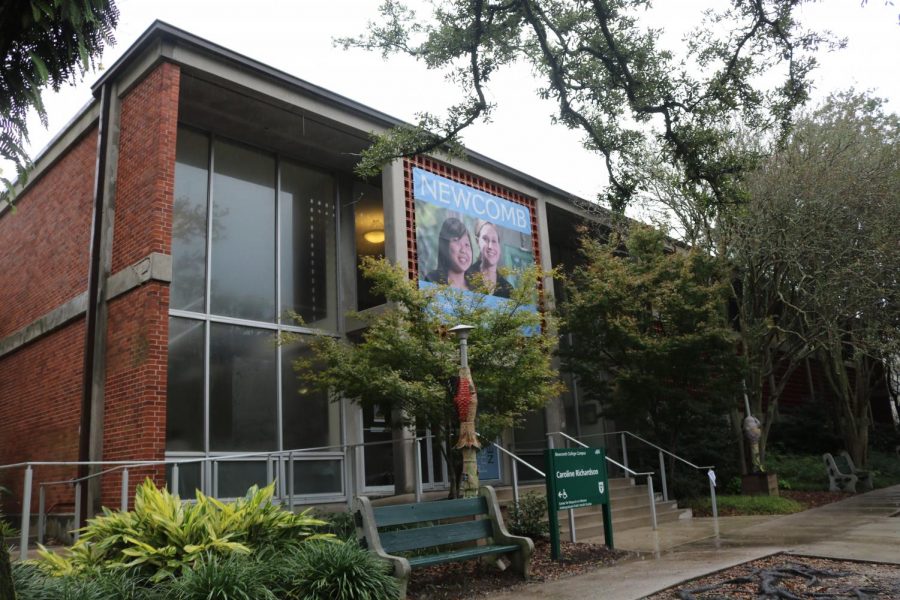Tulane prepares for coronavirus outbreak
More than seven weeks after the first cases of the 2019 coronavirus disease were reported in the Chinese province of Wuhan, there continues to be a growing number of confirmed cases in and outside of China. According to USA Today, more than 75,000 people have been infected and more than 2,000 people have died worldwide from the novel coronavirus.
As of Wednesday, 15 people in the U.S. have tested positive for coronavirus while 52 cases are pending, according to the Center for Disease Control and Prevention. Cases have been confirmed in Arizona, California, Illinois, Texas, Massachusetts, Washington and Wisconsin.
There are no confirmed outbreaks of the coronavirus on American college campuses. Nevertheless, universities have been vigilant in preparing for the worst-case scenario of one or more infected community members.
Last Friday, the Tulane University School of Public Health and Tropical Medicine hosted a forum to discuss the latest research on novel coronavirus and Tulane’s preparedness for an outbreak.
According to Anna Gunod, director of infection prevention at Tulane Medical Center, the Tulane University Medical Center staff is fully educated on the coronavirus and is prepared to contain the virus in the unlikely event the hospital takes in an infected patient.
The entire university, not just the medical center, is preparing for the unlikely event of an outbreak. Another speaker at the forum, Dr. Meredith Beers, Tulane’s Business Continuity manager, said Tulane has constructed an emergency response team of leaders across different sectors of the university to ensure Tulane is prepared for any eventuality.
According to Dr. Beers, the Campus Health Center and the Tulane Medical Center screen all incoming patients exhibiting flu-like symptoms for coronavirus.
The university has also attempted to keep the Tulane community informed on the spread of the virus. On Jan. 24, Tulane University Campus Health sent an email to the student body warning of the symptoms of the disease and assuring them the University is taking steps to prevent an outbreak on campus. The email urged anyone experiencing flu-like symptoms who had recently traveled to the Asia-Pacific region to seek medical attention immediately.
The Office of the Chief Operating Officer sent an email on Jan. 29 informing the Tulane community that the Department of State and the Center for Disease Control had placed a level 3 travel advisory for China, which strongly discouraged non-essential travel to the country.
The statement also informed community members that no Tulane students, faculty or staff would be permitted to travel to China for university business or academic purposes.
“While these precautions are necessary to protect everyone, we must always keep in mind that Tulane University is a global institution that values and welcomes members from around the world,” Patrick J. Norton, senior vice president and chief operating officer, and Provost Robin Forman wrote in the email.
On Feb. 1, President Donald Trump ramped up precautionary measures against the outbreak by banning foreign nationals who had traveled to China’s Hubei Province in the past 14 days from entering the U.S. and imposing a mandatory 14-day quarantine on all Americans returning from China.
Because of travel restrictions and safety concerns, Tulane students who were planning to study abroad in China this semester have had to change their plans. According to Director of Study Abroad Anne Gibson, there was one student scheduled to study in China this semester who had to take a leave of absence and postpone study abroad until the Fall 2020 semester.
Two students participating in the business school exchange program were also scheduled to study in China. Mariette Thomas, Associate Director of Study Abroad & International Programs, said they were rerouted to a different location or took a leave of absence.
The precautionary travel restrictions also impact Chinese foreign exchange students, according to Beers.
“We’re looking at how [the virus is] impacting our international scholars, who are supposed to be starting their time with us right now,” Beers said. “Several were supposed to start this week. We have several more supposed to start in March. They cannot get here.”
Additionally, Beers said families from China who want to attend commencement may not be able to get visas to enter the U.S.
Despite the negative impacts of the restrictions, senior public health major Bethany Hallenborg said she believes the government and university response was appropriate.
“With this being Mardi Gras season and the rise in tourists, there is — rightfully so — more anxiety about an outbreak than before,” Hallenborg said. “And this is flu season, so symptoms of any respiratory infection are concerning. But we have no cases of COVID-19 in Louisiana, and all the other cases in the United States are being tracked as well as any contacts.”
Hallenbourg encouraged everyone to be aware of and seek medical attention for any flu-like symptoms they may exhibit.
Your donation will support the student journalists of Tulane University. Your contribution will allow us to purchase equipment and cover our annual website hosting costs.




